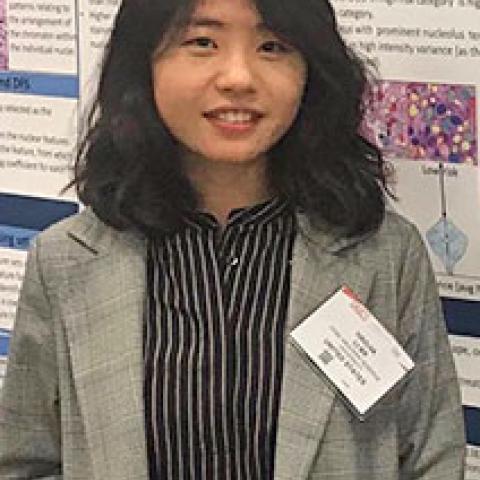Scientists in Anant Madabhushi's lab have used artificial intelligence (AI) to identify new biomarkers for breast cancer that can predict whether the cancer will return after treatment—and which can be identified from routinely acquired tissue biopsy samples of early-stage breast cancer.
The key to that initial determination is collagen, a common protein found throughout the body, including in breast tissue. Previous research had suggested that the collagen network, or arrangement of the fibers, relates strongly to breast cancer aggressiveness. But this work by Case Western Reserve researchers definitively demonstrated collagen’s critical role—using only standard tissue biopsy slides and AI.
The researchers, using machine-learning technology to analyze a dataset of digitized tissue samples from breast cancer patients, were able to prove that a well-ordered arrangement of collagen is a key prognostic biomarker for an aggressive tumor and a likely recurrence.
Doctoral student Haojia Li led the research, which was published in the journal npj Breast Cancer. Co-authors include Cancer Center Members: Anant Madabhushi, PhD, Pingfu Fu, PhD, Cheng Lu, PhD, Hannah Gilmore, MD and Trainee Associate Member: Kaustav Bera.


